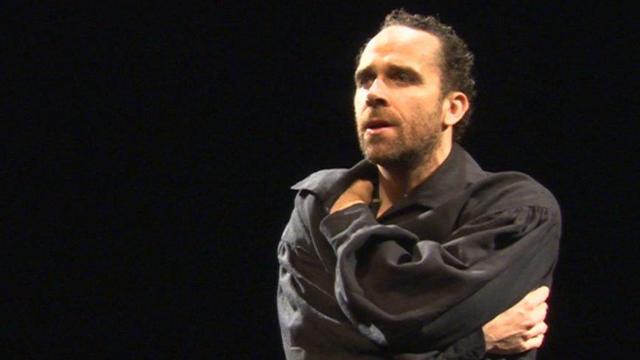Profile: Terry Hands's final bow at Theatr Clwyd Cymru
- Published

Terry Hands spent 25 years at the RSC before joining Theatr Clwyd Cymru
Theatre director Terry Hands, whose artistic life has been synonymous with William Shakespeare, is stepping down from Theatr Clwyd Cymru after 17 years as its director.
"I'm used to the idea now, in fact I'm quite de-mob happy," says the 74-year-old, whose career included a quarter of a century at the Royal Shakespeare Company from the late 1960s.
He was also the driving force in setting up Liverpool's Everyman Theatre.
Hands's career has earned him theatre awards, a CBE and seen him working with such luminaries as Derek Jacobi, Anthony Sher, Ralph Fiennes and Ben Kingsley.
His final bow is directing Hamlet.
Hamlet actor Lee Haven Jones on Terry Hands's encyclopaedic knowledge of Shakespeare
"I certainly wanted to do a Shakespeare and I've been wanting to do Hamlet for a long time. It was a question of finding an actor. And Lee [Haven-Jones], I think, has the talent, intelligence and charisma to play it.
"On a lighter level, the box office girls have been nagging for years 'why don't you do Hamlet?' And I thought OK, the two things came together, so I put it on."
This Hamlet is also a family affair off stage with his son Rupert the assistant director.
But why has Hands been out on his own in Wales with Shakespeare?
"The problem with Shakespeare is it's expensive, they're big casts, and I can't tolerate any more six-man Shakespeares with lots of doubling," he retorts.
"To do this we are on the back of the money we earned from Under Milk Wood - that is paying for Hamlet. And when we did As You Like It, it was To Kill A Mocking Bird. So you have to build a treasure chest.
"And you can't really spread it because - (a) it's difficult and it does require a bit of experience. And (b) it costs a lot of money. But there are plenty of other very good plays that can be done."

IN PICTURES: HANDS'S FINAL SHAKESPEARE
"Fear no more the heat o' th' sun, Nor the furious winter's rages. Thou thy worldly task hast done, Home art gone and ta'en thy wages" - Cymbeline, William Shakespeare
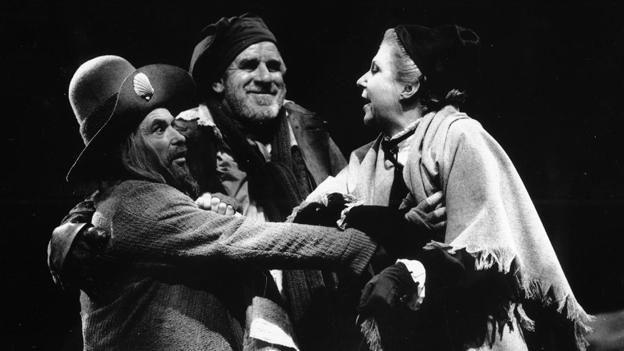
1999: Twelfth Night
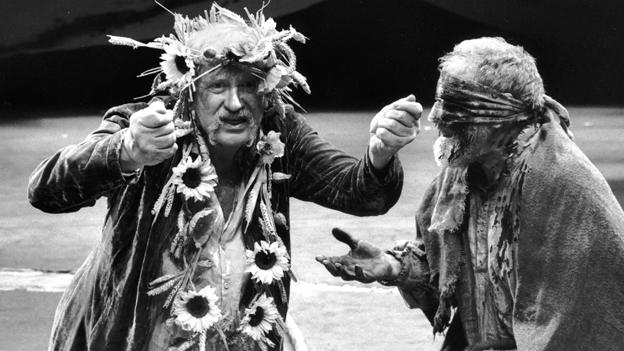
2001: King Lear
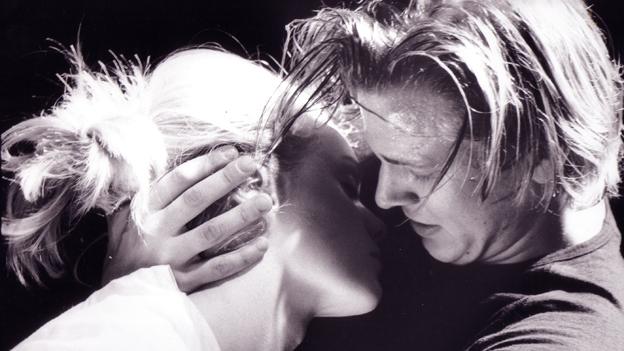
2002: Romeo and Juliet
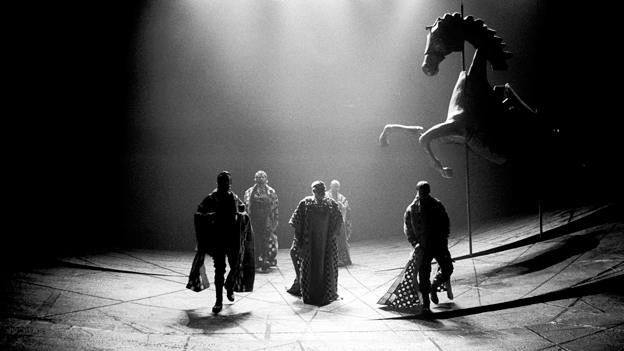
2005: Troilus and Cressida
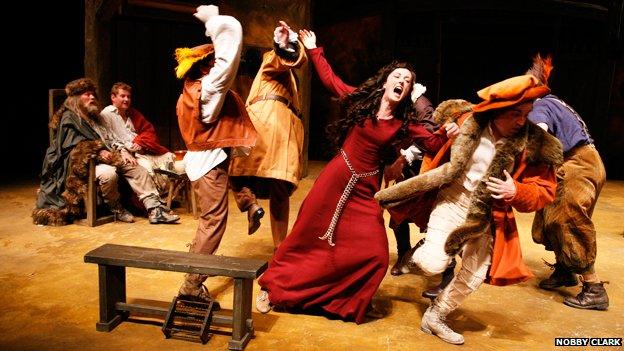
2011: The Taming Of The Shrew

2012: As You Like It
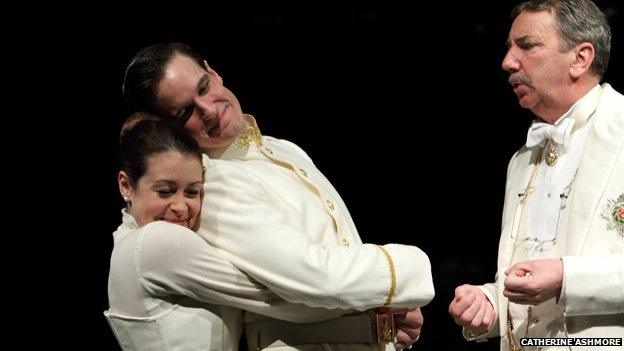
2015: Hamlet

He is asked about the future for his theatre - which he helped rescue in 1997 - and theatre in general.
"There will always be people who don't like the arts, because you can build a hospital, you can do another school," he said.
"I mean, why put somebody on the moon, you could've built five hospitals?
"Why do anything which is not measurable?
"The theatre develops the imagination - thinking, the freedom. Even the Russians used to say 'not by bread alone' and allow a world where the imagination can work and where the audience and the stage can work together."
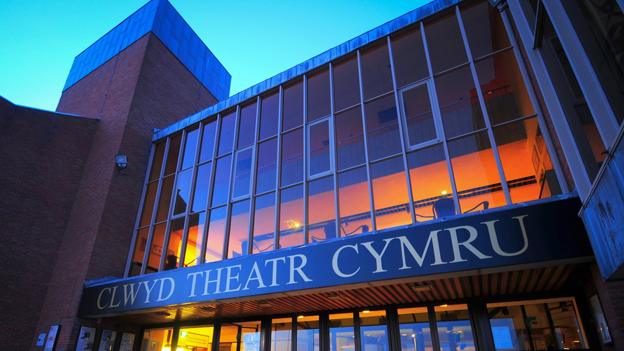
The Theatr Clwyd Cymru in Mold - the building opened in 1976
"I think it has got a future. We played to over 200,000 people last year, that's an awful lot of people who want to see live theatre.
"That said, the building is very old, it needs renovation. When I first came, we did extensive plans for renovating which were not carried through. And we've done another set, with the same architects who did the Royal Shakespeare Theatre in Stratford, and the Arts Council (of Wales) is very much in favour.
"It needs now further help from the government - but of course we're in a period of constraint, so it will have to wait. But in terms of the future, yes this place has very much got a future."
He says after he leaves "it will improve overnight and in 17 years be the most famous theatre in Britain rather than just Wales."
As for his own future, he will certainly be back.
"It was a wrench leaving the Liverpool Everyman, which I am still incredibly fond of and I still go along.
"Leaving the RSC after 25 years was a wrench but somehow we've stayed in contact. And it will be a wrench leaving here, I mean I'm very happy and I love the people.
"But on the strength of the Liverpool and Stratford experience, we'll still be seeing each other because I'll be there for all their shows, to watch their shows, and join the party."
- Published20 February 2015
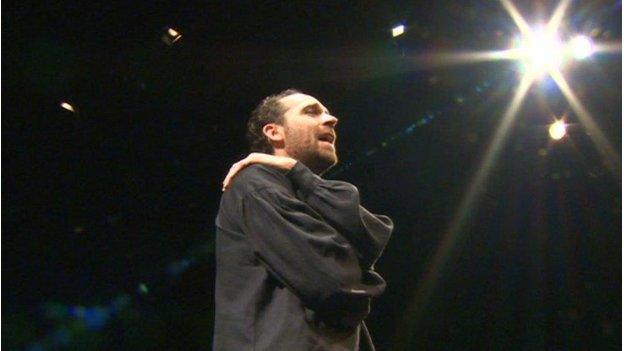
- Published20 February 2015
